
News


Teamwork and a multi-modal approach to infection prevention and control were the driving forces behind positive change and improved patient outcomes at several institutions that were honored in late 2014 by the Fine Foundation and the Jewish Healthcare Foundation (JHF). The Fine Awards for Teamwork Excellence in Health Care recognized frontline workers in the greater Pittsburgh, Pa. area who elevate and disseminate best practices in infection control - a quality measure that influences whether providers receive incentive payments or incur penalties from the Centers for Medicare and Medicaid Services (CMS).



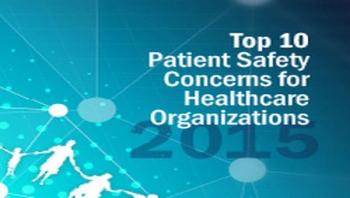






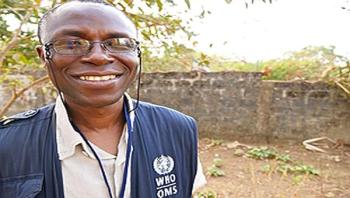
As the WHO emergency focal point for West Africa, whenever there is an emergency in the region, Dr. Ngoy Nsenga is one of the first to be deployed. Following confirmation of Ebola cases in Guinea, Nsenga went to Sierra Leone to help assess emergency response capacity. During his trip, the first signs of Ebola crossing the border were detected. Originally from DRC, Nsenga quickly realized that the few cases in Kailahun could quickly become a serious health emergency.

By engineering antibacterial enzymes, Dartmouth investigators led by Karl Griswold, PhD are using novel strategies to target the prevalent drug-resistant bacterium Staphylococcus aureus. Recent papers in FEMS Microbiology Letters and Applied Microbiology and Biotechnology describe their findings from a genome mining effort seeking novel antibacterial agents. A third paper published in ACS Chemical Biology examines redesigned versions of human lysozyme, a broad-spectrum antibacterial enzyme.




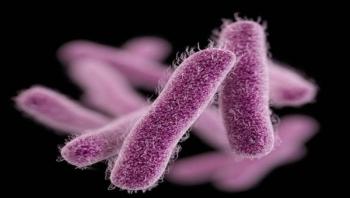
International travelers are bringing a multidrug-resistant intestinal illness to the United States and spreading it to others who have not traveled, according to a report released today by the Centers for Disease Control and Prevention (CDC). Shigella sonnei bacteria resistant to the antibiotic ciprofloxacin sickened 243 people in 32 states and Puerto Rico between May 2014 and February 2015. Research by the CDC found that the drug-resistant illness was being repeatedly introduced as ill travelers returned and was then infecting other people in a series of outbreaks around the country.



The microbes could surrender to the harmless virus, but instead freeze in place, dormant, waiting for their potential predator to go away, according to a recent study in mBio. University of Illinois researchers found that Sulfolobus islandicus can go dormant, ceasing to grow and reproduce, in order to protect themselves from infection by Sulfolobus spindle-shaped virus 9 (SSV9). The dormant microbes are able to recover if the virus goes away within 24 to 48 hours--otherwise they die.



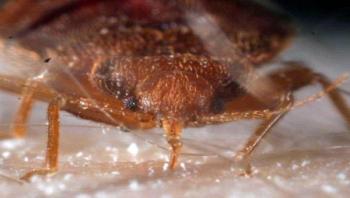
Products that claim to control bed bugs have been on the market for years. Some work, and some don't. Dr. Susan Jones, a professor of entomology at Ohio State University, knows this as well as anyone, after having tested many such products for years. While there have been some flops in the past, she and her colleagues have found one that looks promising as a new tool for bed bug control programs. The results of their research are published in an article in the Journal of Medical Entomology.
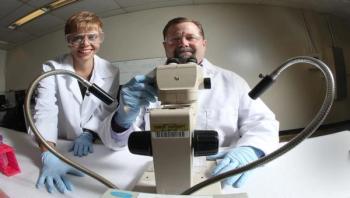
Purdue researchers have identified a new class of chemical insecticides that could provide a safer, more selective means of controlling mosquitoes that transmit key infectious diseases such as dengue, yellow fever and elephantiasis.

